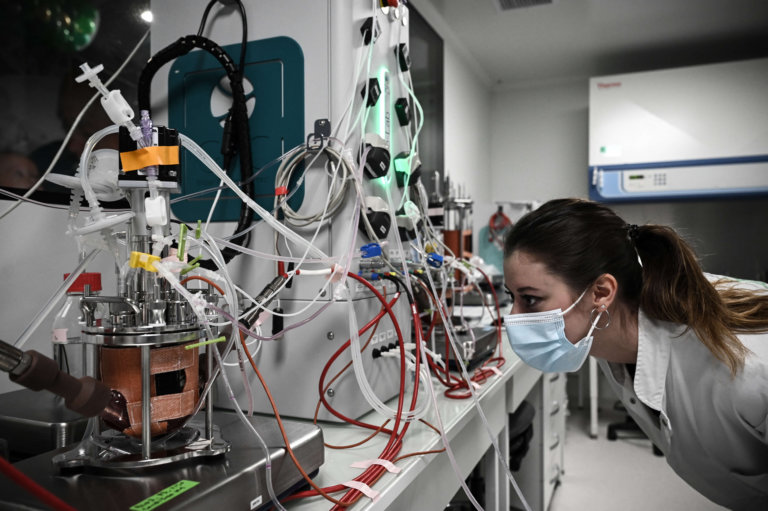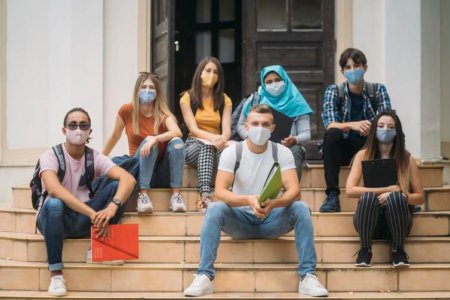
Here’s some welcome news for international students eyeing to study in the US – the Biden administration has revamped its policy in a move to lure foreign talents by adding new STEM courses to the Optional Practical Training (OPT) programme.
The change was announced on Jan. 21, 2022 via a Federal Register notice by the Department of Homeland Security (DHS). “The Secretary of Homeland Security is amending the DHS STEM Designated Degree Program List by adding 22 qualifying fields of study,” the notice read.
The OPT is a temporary work programme related to the F-1 non-immigrant student visa which authorises up to 12 months of employment before or after graduation for international students. If you’ve obtained a STEM degree from an American university, you may apply for up to 24 months of extension for your post-study OPT employment under certain conditions.
Global #STEM talent is critical for U.S. competitiveness, innovation, & economic growth. That’s why today @DHSgov @USCIS & @StateDept announced 4 new ways the Biden-Harris administration is welcoming int’l students, STEM researchers, & entrepreneurs: (1/6)https://t.co/7U4aiZt0U9
— Ur M. Jaddou (@USCISDirector) January 21, 2022
A total of 22 new STEM courses will be added to the STEM Designated Degree Programme List under the OPT. They include emerging fields such as Human-Centred Technology Design, Data Science, Data Analytics, Cloud Computing, and Business Analytics — a sign that the government is tracking the field of study closely.
“I think that the STEM field additions are positive and show that DHS is paying attention to evolving fields of study,” Kevin Miner, an immigration lawyer and partner at Fragomen law firm, was quoted saying by Forbes. He added that the recognition given to the highly quantitative field of analytics, which was previously excluded from the OPT’s STEM category, will help retain foreign talents within the American workforce.
New STEM courses to OPT Extension a welcome move for international students

A study has shown that increased approvals for OPT is associated with lower unemployment among Americans. Source: Maddie Meyer/Getty Images North America/ Getty Images via AFP
Aside from fostering economic expansion and innovation, the policy change is part of a strategic bid to overtake China, which has now overtaken the US in the number of undergraduate and doctoral students in fields spurring economic growth, the Times of India reports.
Enrolment of foreign students in US universities had been declining since 2016 and suffered a further blow at the height of the COVID-19 due to health and travel restrictions. The plunge in 2020 was the largest on record, based on data gathered since 1948.
According to the National Foundation for American Policy (NFAP), international students account for a staggering percentage of full-time graduate students in various fields such as petroleum engineering, computer and information sciences, mathematics, and various other STEM-based courses. The data illustrates that it would be difficult to sustain US graduate programmes without international students.
“Over the past two decades, foreign-born scientists and engineers have played a critical role in filling the demand for high-level technical talent in the US,” the report read.
Adding more STEM courses to the OPT Extension is also the Biden administration’s attempt to reverse anti-immigration agenda left behind by the Trump administration, which sought to slash visas allowing foreign graduates to work in the US after their studies, AP News reports.
Still, not everyone is welcoming of the change by DHS.
“This is exactly the kind of policy that destroys the career prospects of young American graduates,” reads a Twitter post by US Tech Workers, a non-profit group critical of foreign worker visa programmes. “USCIS is incentivising employers to discriminate against US grads because the OPT programme provides employers who hire foreign students.”
This is exactly the kind of policy that destroys the career prospects of young American graduates.
USCIS is incentivizing employers to discriminate against US grads because the OPT program provides employers who hire foreign students:
– FICA tax exemptions
– No wage standards https://t.co/a6TQoLQ1ZD
— U.S. Tech Workers (@USTechWorkers) January 21, 2022
Research and expert opinions, however, say otherwise. A study examining nearly a decade of data on OPT Extension by Madeline Zavodny, an economics professor at the University of North Florida, concluded that the OPT programme does not reduce opportunities in STEM jobs for American workers, Forbes reports.
In a separate study by the NFAP, lower unemployment rates have been recorded among US workers is associated with a large number of foreign students approved for OPT. Increased international student enrolment also boosts the US economy. International students pay higher fees and spend money on rentals, insurance and other expenses off-campus, often with taxes on top. This results in the creation of one US job for every three international students supported by their dollars.










